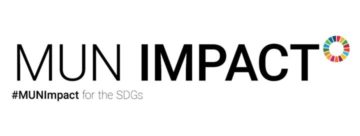Ahmed Al Meraikhi, Secretary General Humanitarian Envoy
Role of the UN Secretary-General’s Humanitarian Envoy
Envoys of the UN Secretary General are appointed to deal with a specific set of issues. The continually increasing humanitarian needs of individuals, particularly those due to protracted conflict, requires specialised in-depth knowledge of stakeholders and the needs of those affected. Thus, the UN Secretary-General’s Humanitarian Envoy is charged with ensuring stronger linkages between the United Nations and decision makers in the Gulf countries and beyond ensuring the humanitarian needs of affected persons are communicated.
Dr. Ahmed Al Meraikhi was appointed in December 2016 as the UN Humanitarian Envoy to the UN Secretary General, succeeding Dr. Abdullah al Matouq of Kuwait who held the post since its inception in 2012. Dr. Al-Meraikhi’s overall objective focuses on supporting multilateral humanitarian response efforts by raising the profile of humanitarian crises with traditional and less traditional stakeholders and increasing their engagement with the international humanitarian community whilst embodying the UN’s New Way of Working, endorsing the Agenda for Humanity and the Sustainable Development Goals. Dr. Al Meraikhi works closely with the Under-Secretary-General for Humanitarian Affairs, Mr. Mark Lowcock, to build stronger partnerships between the UN and stakeholders globally to respond to the humanitarian needs facing the world.
Humanitarian Needs
In 2018, an estimated US $22.5 billion, will be needed to provide life-saving assistance to 90.9 million people devastated by wars and natural disasters. Conflict will cause the largest proportion of humanitarian needs in 2018. Drought and other adverse weather events will also lead to humanitarian needs, involving food insecurity, vulnerability, loss of livelihoods, and disease outbreaks. Global forecasts suggest that there will be minimal improvement in 2018 in most conflicts, with worsening food insecurity. The Horn of Africa will continue to suffer from poor harvests, although there is a low risk of El Niño or La Niña. Some scientists predict greater earthquake risk. The country-specific 2018 Humanitarian Response Plans are based on a rigorous assessment and analysis of need and coordinated planning by humanitarian agencies on the ground. The plans are also better aligned with the work of development agencies, where the context allows, and increasingly plan over multiple years for protracted crisis.
Role of the UN Secretary-General’s Humanitarian Envoy

As a Champion of the No Lost Generation for children in Syria and Iraq, the Humanitarian Envoy continues to advocate for those most affected by humanitarian crisis, children and young people. Specifically, the Humanitarian Envoy actively campaigns for increased humanitarian access, adherence to international humanitarian law and the protection of children and their right to an education.
“Every Syrian and Iraqi child has the right to learn and develop in a safe environment – and it’s our collective responsibility to make that happen. Engaging with Model UN means you are joining this effort which should be at the top of the priority list for anyone who would like a peaceful and productive future for the region.”
-Dr. Ahmed Al Meraikhi UN Secretary-General’s Humanitarian Envoy

Photo © UNICEF/UN067457/Souleiman
The No Lost Generation initiative is an ambitious commitment to action by humanitarians, donors and policy makers in support of children and youth affected by the Syria and Iraq crises. The aim of the initiative is to secure the safety and future of a whole generation of children and young people whose wellbeing, education and development stand to be decimated by seven years of war.
Programming under the No Lost Generation initiative is embedded within the humanitarian plans for the Syria and Iraq crises, as well as the refugee hosting countries in the region (Egypt, Jordan, Lebanon and Turkey). It reaches children, and young people under three pillars of programmes; education, child protection, and adolescents and youth.
At the regional level, No Lost Generation:
- Provides an overarching regional framework for key areas of the response.
- Provides platform for joint advocacy on the priorities for children and youth.
- Amplifies the voices and perspectives of adolescents and youth.
- Links efforts in different sectors to achieve results on issues which cannot be addressed by one sector alone, such as child labour or child marriage.
- Combines immediate response with strategic investments for the future.
- Mobilises resources for sectors at risk of underfunding.
